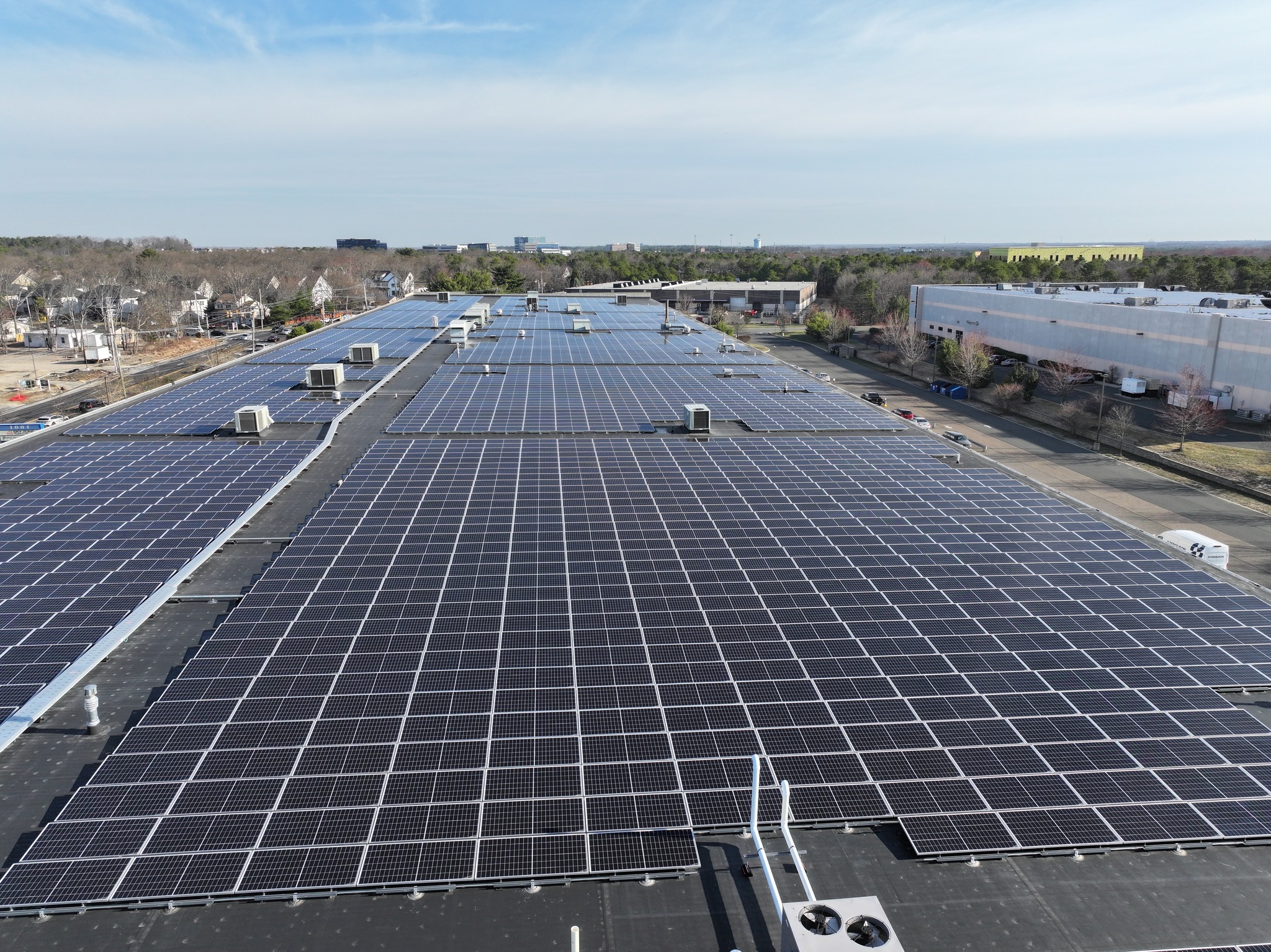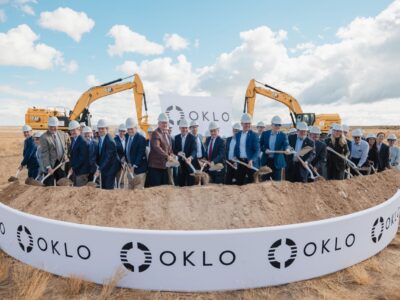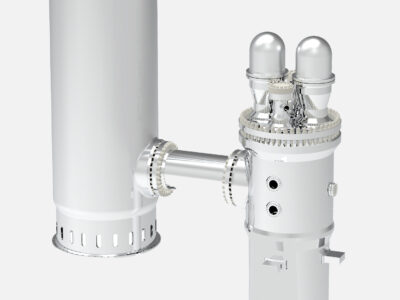National Clean Energy Week (NCEW) kicked off yesterday, with leaders and legislators from multiple states sharing remarks ahead of the event to prepare for its arrival and reflect on their state’s progress.
California
Rep. Young Kim (R-CA-40) noted, “I believe in an all-of-the-above energy strategy that expends clean energy, supports American jobs, and strengthens our national security. We need leases, permits, and pipelines, alongside robust investment in renewables like geothermal energy.” She added that she championed the Harnessing Energy At Thermal Sources (HEATS) Act to help lower energy costs for families, and that she is leading the Minerals Security Partnership (MSP) Authorization Act to diversify supply chains and ensure energy security. “It doesn’t have to be one or the other – natural gas or renewables, environment or economy. We can do both,” she said.
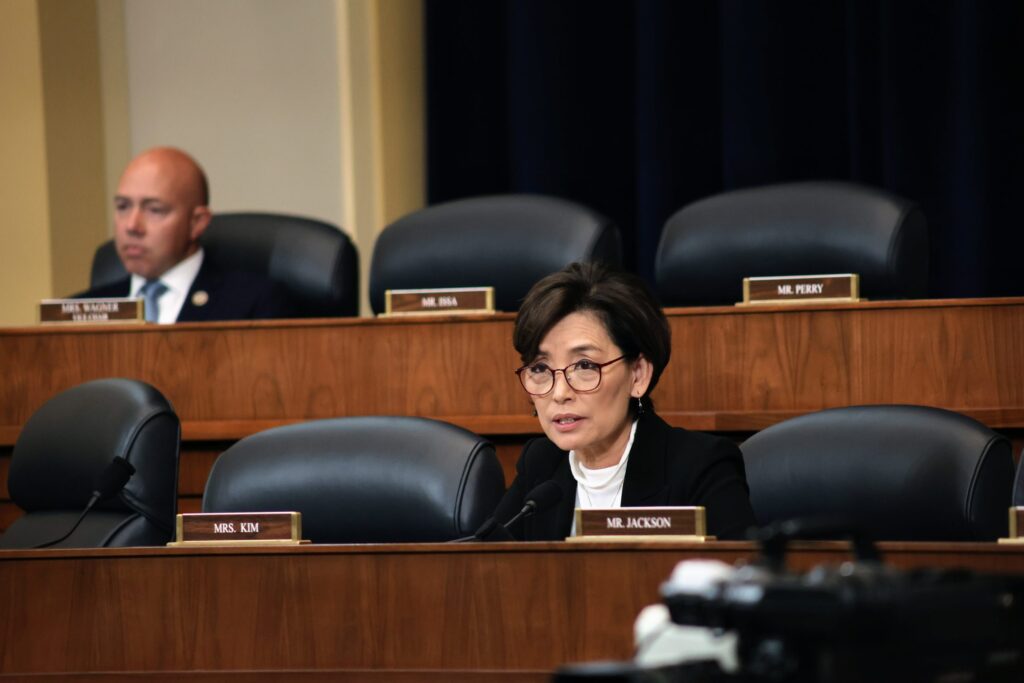
Photo Courtesy Rep. Young Kim
Colorado
Gov. Jared Polis (D-CO) recalled that he set a goal for Colorado of 100% renewable energy by 2040. In less than five years, his administration has secured a commitment to reduce power sector emissions by more than 85% by 2030.“With the actions we’re taking, we’ve bent the cost curve for clean energy technologies, ensuring that they’re the most cost-effective solution for growing Colorado. Wind and solar are the cheapest ways to power an electrified future with EVs, modern manufacturing, and clean buildings.” He noted that his administration partnered with the state’s largest utility, Excel Energy, to announce a new procurement for 4.5 gigawatts (GW) of new wind and solar resourcing in the state. “We continue to push forward in Colorado, investing in groundbreaking technologies and strategies to protect our air and water, strengthen our economy, create good-paying jobs, and yes, save people money in the process,” he said.
Georgia
“As the number one state for business for 11 consecutive years, we have celebrated record-breaking jobs and investments coming to all four corners of the Peach State,” explained Gov. Brian Kemp (R-GA). “With that growth, we know we must continue innovating to provide the power that both hard-working Georgians and job creators need to succeed.” He pointed out that Vogtle Units 3 and 4, the first nuclear reactors built in the country in over 30 years, are located in the state, with Plant Vogtle as the largest clean energy generator nationwide. “As our nation’s industries, like manufacturing, continue to expand and drive population growth, we must continue finding innovative ways to meet the demand for reliable energy,” he concluded.
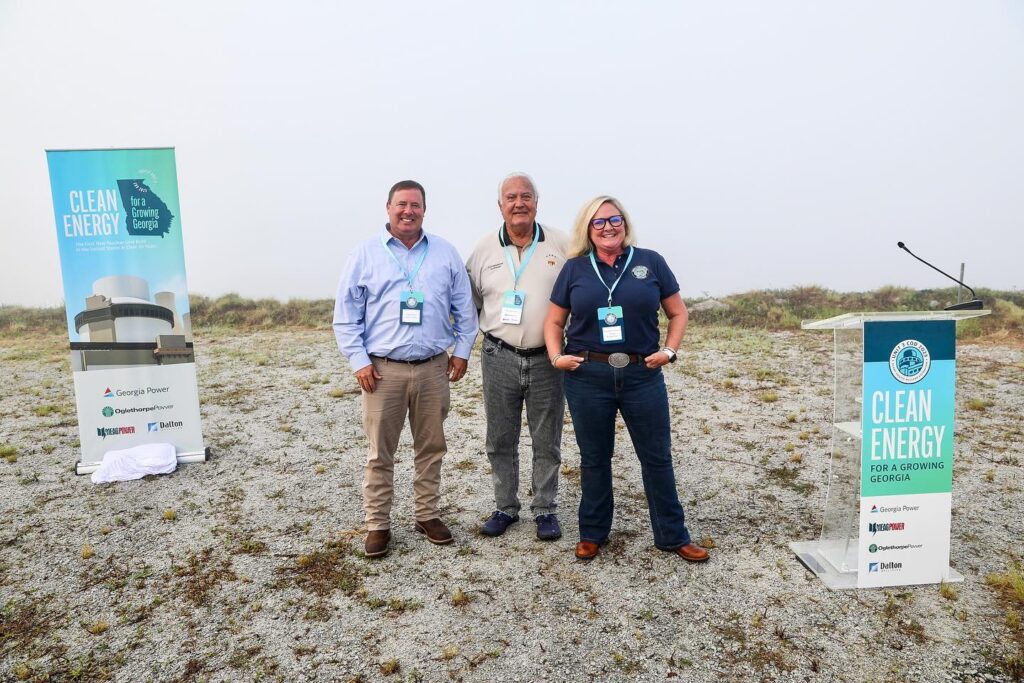
Photo Courtesy Governor Brian Kemp
Idaho
“Idaho is a national leader in the use of clean, renewable power, and it is the fifth highest in the nation for electricity generated from these sources,” Sen. Mike Crapo (R-ID) stated. He highlighted that 68% of the total electricity generated in Idaho comes from a clean energy source and that the sector creates more than 15,000 jobs. He added that he continues “to press for collaborative solutions to our nation’s overall energy needs and encourage an all-of-the-above energy strategy that promotes our energy independence and national security.”
Michigan
Lieutenant Governor Garlin Gilchrist II (D-MI) recalled that he and Governor Gretchen Whitmer (D-MI) signed a “historic clean energy law to lower costs, create jobs, and fight climate change.” Since 2022, their administration has created 127,000 clean energy jobs. “Our work has helped more Americans turn on their lights, heat or cool their homes, and charge their devices for less money,” he elaborated. “Let’s keep working together to invest in clean energy, grow our economy, and build a bright future for our state, nation, and the world.”
“This week is an important reminder that a clean energy future is critical, not only for ensuring that future generations inherit a healthy environment, but also for securing America’s energy future,” said Rep. Debbie Dingell (D-MI-06). “It’s about creating good-paying jobs, protecting our environment, strengthening our national security, and ensuring every community has access to affordable, reliable, and sustainable energy.” She reminisced on her support for legislation that invests in clean energy innovation, reduces emissions, and leaves no community behind. “We have a responsibility to act, and to act boldly,” she said. “We’re all in this together.”
New York
Rep. Nick LaLota (R-NY-01) observed that his experience in the Navy, including three deployments across the Pacific, gave him the chance to see firsthand “how our ships, aircraft, and missions relied on reliable American energy, and how adversaries like China, Russia, and regimes in the Middle East weaponize energy to squeeze our allies, manipulate markets, and tilt the balance of power.” He voiced his support for an all-of-the-above energy strategy, including the safe and clean extraction and production of oil and gas, the growth of nuclear power, the addition of wind and solar power, and investments in grid resiliency. “I know that energy security is national security. America can never afford to be dependent on foreign nations for the energy that keeps our economy running and our military strong,” he explained. For example, he highlights that he fought to preserve energy tax credits in this year’s budget reconciliation bill. “My mission is clear: to ensure the next generation inherits a nation that is stronger, safer, and more secure, and that starts with American energy leading the way.”
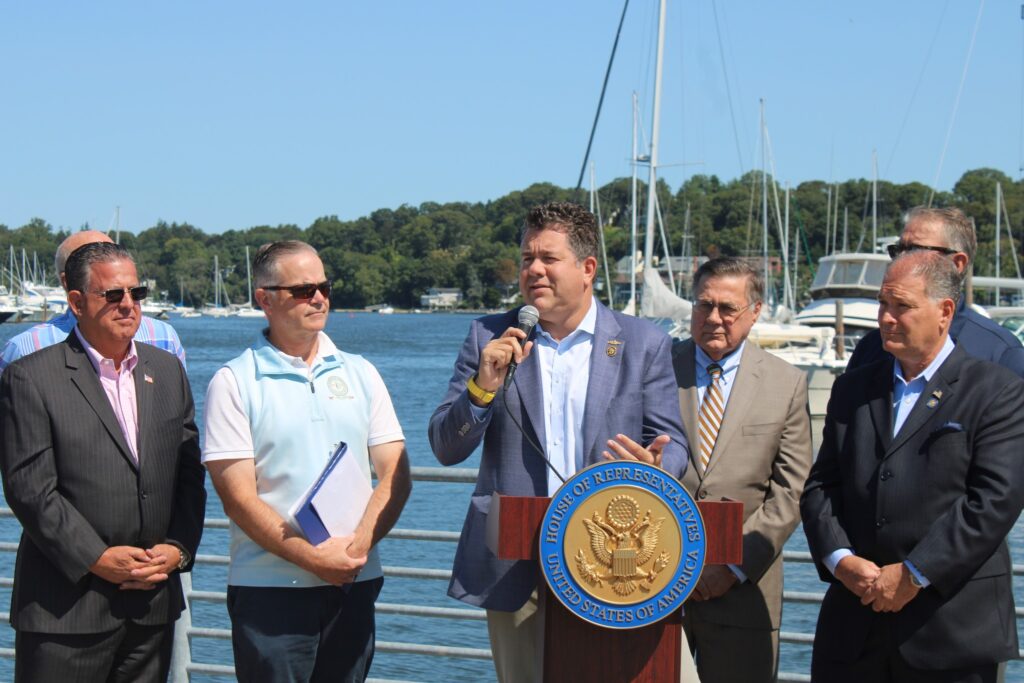
Photo Courtesy Congressman Nick LaLota
North Carolina
“Facing a changing climate with determination and resilience is paramount to safeguarding America for generations to come,” observed Rep. Greg Murphy (R-NC-03). His district covers approximately 80% of North Carolina’s coast, including the Outer Banks, which presents challenges posed by hurricanes and other intense weather events. In response, he initiated the Water Adaptations to Ensure Regional Success (WATERS) Summit, a bipartisan effort to bring together leaders, experts, and stakeholders to develop solutions.
Plus, Rep. Murphy’s district plays a crucial role in advancing clean energy solutions: “For a few years now in the Outer Banks… there’s a tremendous amount of renewable energy research being conducted.” Rep. Murphy highlighted the work of the Coastal Studies Institute, a research partnership led by East Carolina University, in particular. He added, “To power our future efficiently and responsibly, we need to utilize all the energy resources at our disposal… If we can put a man on the moon, we can lead the world in transitioning to cleaner forms of energy production.”
Rep. Deborah Ross (D-NC-02), the ranking member for the Energy Subcommittee for Science, Space, and Technology, remarked that she has been working on clean energy issues for nearly two decades. “We all know that we need more energy right now,” she said, “but we also need that energy to be inexpensive and not harm our environment, and that’s where clean energy comes in.” Not only has the cost of clean energy gone down, but the number of sources has increased, “and we’ve got to make sure that we continue to invest in them and use them.”
Oklahoma
Gov. Kevin Stitt (R-OK) highlighted that Oklahoma is one of four states with 45% of its energy coming from clean energy sources. “We should be unleashing energy production and meeting the needs of American consumers. To do that, we need an energy abundance agenda. In Oklahoma, we let the free market drive our energy production.” As a result, he remarked, innovative companies have established a presence in the state. For example, USA Rare Earth developed the country’s first rare earth metal and neo-magnet manufacturing facility, and Westwin Elements opened the country’s only nickel refinery; “producing them here at home strengthens American security.” He added that the state’s behind-the-meter laws give companies more choice over their power solutions. “We’re showing the country how to take control of our own energy future. Oklahoma’s ready to meet our nation’s energy needs, and I’m declaring it the year of the energy abundance agenda.”
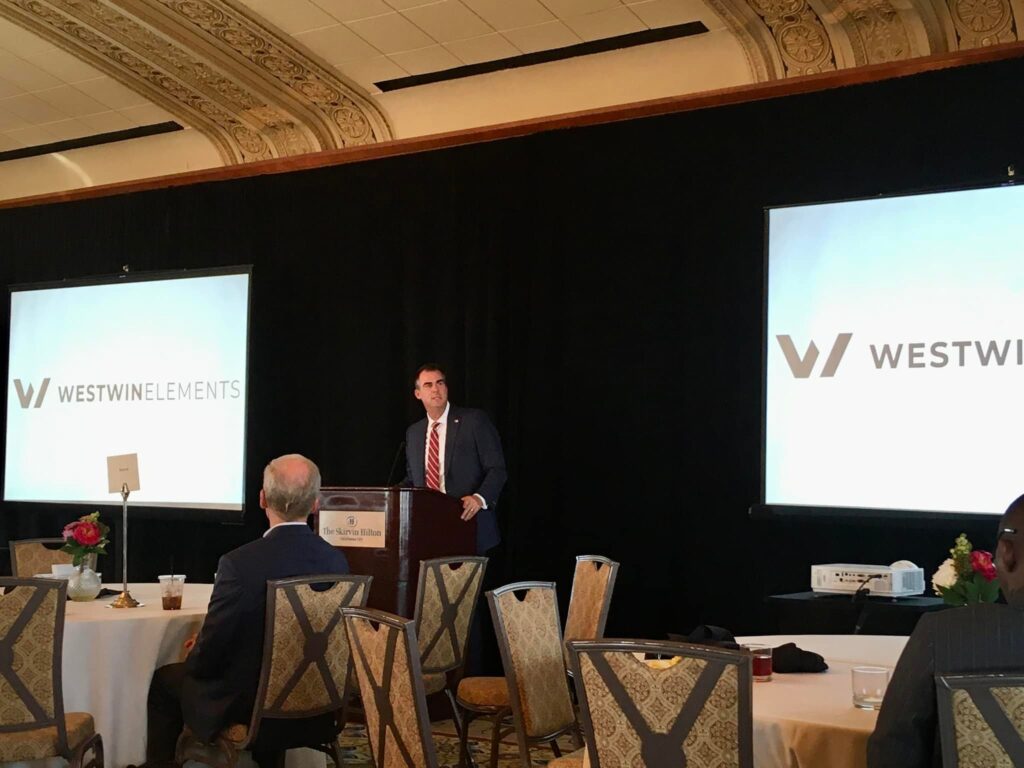
Photo Courtesy The State Chamber
Vermont
Sen. Peter Welch (D-VT) said that his focus in the Senate is on bringing more clean energy projects online to lower energy costs and reduce carbon emissions. “We need to transform our electric grid,” he explained, reflecting on investments since 2022 that have generated more clean energy than ever before. “We also need to keep investing in building even more renewable energy projects… We know they create good-paying jobs, and they continue to lower costs.” Finally, he pointed out the need for permit reform for a process “that works, maintains values in the environment, but gets done sooner rather than later.” In pursuing these actions, Rep. Welch declared that the state can also lower costs and improve the economy.

